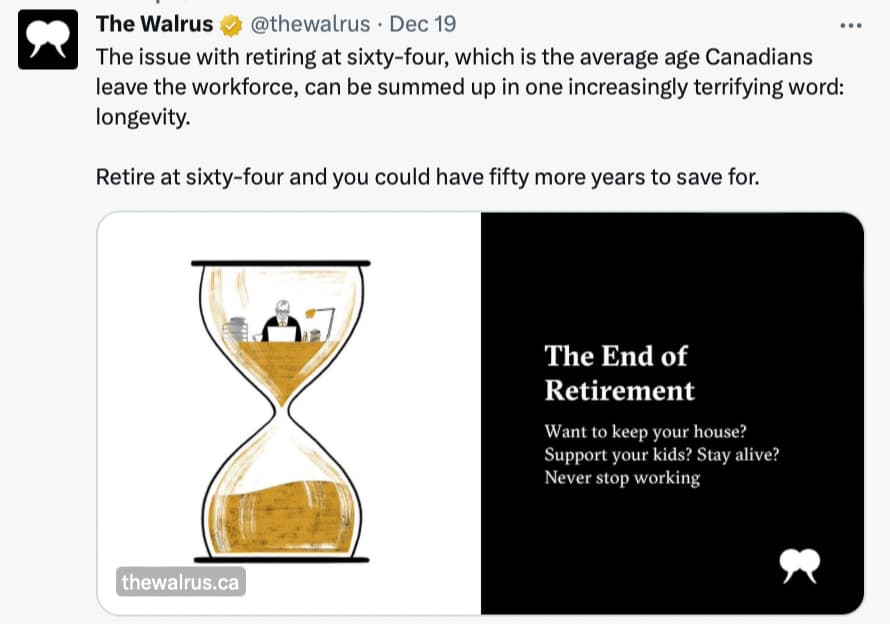As with most people here, I’m a big fan of “Healthy Longevity”. But, this doesn’t mean that I can’t see some problems with “healthy longevity” in some situations.
Part of the issue is in the definition of “healthy”, because “aging” is the steady loss of function, so you can reasonably say there is no such thing as “healthy aging”. But - for sake of argument, lets just assume “healthy aging” means aging without any significant and serious disease scenarios.
Given this definition - I’ve recently come across some articles that I think can demonstrate some problems that significant portions of the population can expect to run into even given “healthy longevity”…
Ageism:
Ageism, Silent Influencer Of Longevity
What images come to mind when you hear “80-year-old” or “octogenarian”? A hunched-over man or woman walking with a cane, possibly suffering from memory loss or other forms of cognitive decline? Or someone like Anthony Fauci, who in his early eighties helped lead the US government’s response to an unprecedented public health crisis?
Your answer may be more important than you know, for studies suggest that our attitudes about aging can influence the quality of our golden years and our longevity.
In exploring the intersection of ageism and longevity, a paradox becomes apparent. Researchers Cassie Curryer and Peta S. Cook perfectly encapsulated it in a 2021 paper on the costs of ageism: “[W]hile longevity is celebrated, older age is not.”
In other words: ageism. Defined as stereotyping, prejudice, or discrimination against a particular age group—especially older people—it is often said to be the last acceptable prejudice.
Funding Longevity
I also saw this recently on twitter, a story out of Canada, but I’m sure equally true in many, if not most countries:
Anyone retiring in Canada right now can expect to live at least until eighty (women until eighty-four). But those numbers are averaged out. When I began to discuss retirement with my financial planner in early 2022, he put my life expectancy at ninety-four. “Why, thank you,” I said, “I do try to keep fit.” “No,” said Benjamin Klein, senior portfolio manager at Baskin Wealth Management, “life expectancy is not randomized. When we factor in your gender, genetics, access to good health care, education, and lifestyle, that’s how long you’ll live.”
Stark doubled down on that number. The oldest Canadian is believed to have died at age 117. “If you want to accurately plan, that’s the number that you need to write down,” he said. Retire at sixty-four and you could have fifty more years to save for.
But… In many cases people are forced to retire early:
and of course, the “agism” mentioned earlier may prevent new employment:
Source: Is Silicon Valley Ageist Or Just Smart?
So its pretty clear that you won’t be getting a new job at Facebook with a $300K/year if you’re laid off at some other company at age 50+.
Of course, a big part of this issue is this: The Problem of Brain Aging, Peter Fedichev
And of course, if you’ve been doing physical work / manual labor, its also problematic as even if you’re healthy you are not as agile or dexterous as you age (even if you’re healthy).
So, staying “healthy” is just the start of a complex path to navigate.

